Vital Vitamins
What You Need & How to Get It
Discover the vitamins you can't live without. Find out where to get them, when to take them and how to enjoy the benefits of vitamins that will improve the health of both your body and your mind.
Vitamin Facts
- They are essential. Being deficient in just one of these vital nutrients can critically damage your health. A serious deficiency can cause death.
- They fire up the metabolism and keep the body functioning normally.
- Although required only in very small quantities, they are essential for growth and healing, energy and wellness.
- It is possible for K,D and some Bs to be produced in the body but only under the right conditions. A, C and E, however, can only be obtained from food and supplements.
- It is virtually impossible to receive optimum levels of all vitamins from food alone. As a result, "topping-up" with nutritional supplements is becoming more and more essential. However.....
- A healthy diet is the best foundation for good nutrition.You cannot eat lots of low-quality, processed and unnatural foods, then take some vitamins and expect to stay in the best of health.
The Essential Vitamins
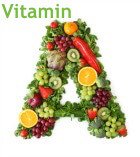 |
Fat-soluble
Can be stored in the body
Comes in two forms: retinol, from animal products, and carotenoids such as beta carotene, found mainly in fruits and vegetables
The body converts beta carotene into retinol when needed
What can A do for you?
Benefits include:
- stronger immune system
- healthy eyes
- good vision
- better healing
- tissue repair
- antioxidant protection
- healthy skin
- strong lungs
You might need extra as a supplement if you:
- Avoid foods rich in A or beta carotene
- Suffer frequent illness or infections
- Experience skin complaints
- Require healing from injury or surgery
- Live or work in an area with high pollution levels
- Receive frequent or prolonged exposure to sunlight
Deficiency Symptoms include:
- Weakened immune system
- Frequent infections, particularly affecting the respiratory tract
- Poor appetite
- Diarrhea
- Impaired health of bones and teeth
- Poor vision and night blindness
- Dry, itching, burning eyes
- Dry, rough skin and premature skin aging
- Weak and poor quality hair and nails
Getting A from Foods
Some of the best sources are liver, eggs, milk and dairy products.
Beta carotene can be found in carrots, dark green vegetables such as broccoli and spinach, as well as brightly colored fruits like apricots, peaches and cantaloupe.
Best Daily Dose of A
5,000 - 10,000 IU (International Units) of A each day is an optimal intake for most healthy adults.
Good intakes of beta carotene are between 6mg and 15mg a day.
Best A Supplements
Look for retinyl palmitate as a dry form of A.
Beta carotene works best as part of a mixed carotenoid complex.
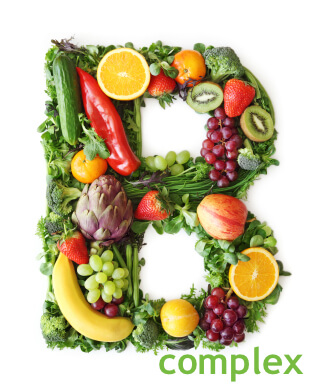 |
Water-soluble
A group of vitamins usually found together in foods
Under the right conditions, the body can produce some of its own Bs
B-complex Benefits:
- Strengthen immune system
- Support cardiovascular health
- Help the body and mind cope with stress
- Have a calming effect and prevent irritability
- Alleviate mild depression
- Blood sugar balance
- Lower homocysteine
- Increase energy and fight fatigue
- Improve mental performance
- Better concentration and memory
- Support nervous system
- Ensure good muscle function
- Healthy skin
- Thicker, stronger hair
- Smooth, supple nails
- Healthy eyes and vision
Do You Need Extra?
Taking a B-complex supplement may be useful if you:
- have a high sugar/carbohydrate intake
- eat a protein-rich diet
- consume alcohol
- are over 40
- experience mental, physical or emotional stress
- suffer mild fatigue or lethargy
Signs of Deficiency:
- Depression and irritability
- Poor mental function
- Digestive disturbances
- Poor appetite
- Dry, rough skin
- Sore, cracked lips and mouth inflammation
- Eye irritation
- Hair loss
- Fatigue
- Headaches
- Insomnia
Best B Foods:
Eggs, milk and cheese, meat, fish and liver, whole grains, green leafy vegetables and fruit
Daily Intake:
Try to get a balanced mix of these important Bs. Good daily amounts are:
25-50mg of B1, B2, B3, B5 and B6
50-100mcg of B12
200-400mcg of Folate
25-50mg of Choline Bitartrate, Inositol, and PABA
50-200mcg of Biotin
What To Look For In A Supplement:
Should contain a good balance of the important Bs - see Daily Intake above
The body needs a regular supply so either divide dose throughout the day or try a time-release product
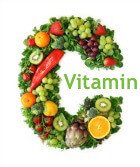 |
Water soluble
Also known as ascorbic acid
Most animals can produce their own C but humans must rely on diet and supplements to fulfill their requirements
What Benefits Does C Have To Offer?
- Promotes healing
- Bolsters immune system
- Fights infection
- Reduces cancer risk
- Keeps heart and blood vessels healthy
- Is a potent antioxidant
- Maintains eye health
- Promotes good vision
- Supports respiratory health
- Delays signs of skin aging
- Helps body absorb iron
What Causes A Need For Extra C?
- Smoking
- Stress
- Pollution
- Illness and infection
- Healing of wounds and injuries
- Gum problems such as gingivitis
- Alcohol
- Poor diet
- Sun exposure
- Aging
Symptoms of C Deficiency:
- Lowered immunity
- Frequent infections
- Gingivitis
- Bleeding gums
- Poor wound healing
- Bruising easily
- Premature aging
Food Sources of C:
Citrus fruits and berries, green leafy vegetables, tomatoes, peppers, cauliflower, potatoes
How Much C Do You Need?
An optimum intake for most healthy adults is 1,000mg-2,000mg.
It is most effective when divided into 2-4 smaller doses spread throughout the day or try a time release formula.
High doses may not be suitable if you have a medical condition or you are taking any medication. Always speak with your doctor for advice before taking or increasing a supplement.
Getting C From The Best Supplement:
C as ascorbic acid is cheaper and readily available. However, if you have a sensitive stomach, look for non-acidic forms such as magnesium ascorbate and calcium ascorbate.
C supplements that also include bioflavonoids help the vitamin to work more effectively.
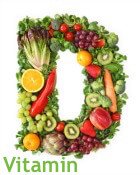 |
Fat soluble
Found as D3 (cholecalciferol) and D2(ergocalciferol)
D3 is better absorbed and more bio-available than D2
Has been called the "sunshine vitamin" as it can be produced when UV rays in sunlight hit the skin
Benefits of D include:
- immune system support
- strong bones and teeth
- reduced risk of osteoporosis
- cancer prevention
- improved muscle function and strength
- brain fitness
- better mood and reduced symptoms of depression
You might need extra D as a supplement if you:
- avoid the sun or have limited access to strong ultraviolet light
- have a dark skin tone or have a tan
- are vegan or vegetarian
- have digestive problems such as celiac (coeliac) disease, irritable bowel or Crohn's disease
- are overweight or obese
Are You Getting Enough D?
Deficiency symptoms include:
- fatigue
- low mood
- depression
- muscle weakness
- softening of bones and teeth
- bone pain
- increased tooth decay
- osteoporosis
Getting D From Foods
Good sources include oily fish such as sardines, herring, salmon and tuna, milk and dairy products, liver and egg yolks.
Daily D Requirements:
Between 1,000 IU and 5,000 IU may be needed each day, depending on how much D you obtain from your diet and/or sun exposure.
Choosing The Best D Supplement:
Look for D3 (cholecalciferol) which is better absorbed and has greater bioavailabilty.
Avoid products that combine D with other fat-soluble vitamins A,E and K as they compete with each other to be absorbed and are best taken separately.
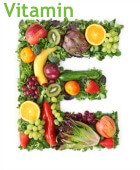 |
Fat-soluble
Not one vitamin but a group of compounds called tocopherols and tocotrienols
Alpha-tocopherol is the most biologically active member of the E family as well as being the most studied
What can E do for you?
- Reduce risk of heart attacks and strokes
- Help lower blood pressure
- Boost the immune system
- Fight infections
- Help prevent cancer
- Act as a potent antioxidant
- Offer protection for the brain
- Keep skin healthy and fight aging
- Prevent cataracts
Do you need extra?
Higher intakes of E can help:
- if you live or work in an area with high pollution levels
- during and after menopause
- when you want to increase your stamina and endurance
- if you want to protect your skin from damaging UV rays in sunlight
- to slow down the aging process
- after surgery or injury, to heal skin and prevent scarring
- to lower blood pressure
Deficiency Symptoms
- Fatigue
- Lethargy
- Muscle weakness
- Lowered immunity
- Low fertility
- Loss of libido
Food Sources of E:
Wheatgerm, soy beans, nuts, vegetable oils, whole grains, leafy green vegetables and eggs
Best Daily Dose of E
Most healthy adults can take 400 IU - 1,000 IU a day.
However, as E thins the blood and lowers blood pressure, higher doses may not be suitable for everyone.
Before taking a supplement, always check with a medical professional if you are on medication, have a medical condition or are planning to have surgery.
The Best E Supplement
Choose natural form E, or d-alpha-tocopherol. Synthetic E, known as dl-alpha-tocopherol, is much less effective.
The best supplements also contain other members of the E family known as tocopherols and tocotrienols that support the vitamin's work.
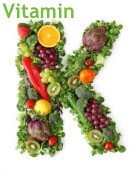 |
Fat-soluble
Family of vitamins comprising K1 ans K2. They have similar structures but offer different benefits
K3 is a synthetic form and should be avoided
What Benefits Does K Have To Offer?
- Maintains strong, healthy bones
- Prevents osteoporosis
- Ensures normal blood clotting
- Helps keep joints flexible
- Assists the remineralisation and strengthening of teeth
When you might need extra K:
- If you are taking calcium and/or D supplements
- Before, during and after menopause
- Over the age of 40
- If you experience gastrointestinal problems
- When taking antibiotics
Symptoms of K Deficiency
- prolonged blood clotting
- nose bleeds
- bruising easily
- loss of bone mass
- osteoporosis
- bone fractures
- tooth decay
- stiff joints
- hardening of arteries
- cardiovascular disease
Best K Foods:
leafy green vegetables, alfalfa, yogurt, egg yolks, kelp, seeds
How Much K Do You Need?
For most healthy adults, taking a daily dose of 100 mcg to 500 mcg each of K1 and K2 is thought to be safe and effective.
However, as K1 affects blood clotting, supplements are not suitable for anyone prescribed blood thinning medication such as warfarin or coumadin.
Avoid K3, which is synthetic, as it is poorly utilized by the body and can lead to toxic build-up.
Getting K From a Supplement
K1 can be taken as a stand-alone nutrient but is also found in good amounts in green food supplements such as spirulina and kelp.
The best form of K2 is menaquinone-7, or MK-7, which is easily absorbed and highly bioavailable.
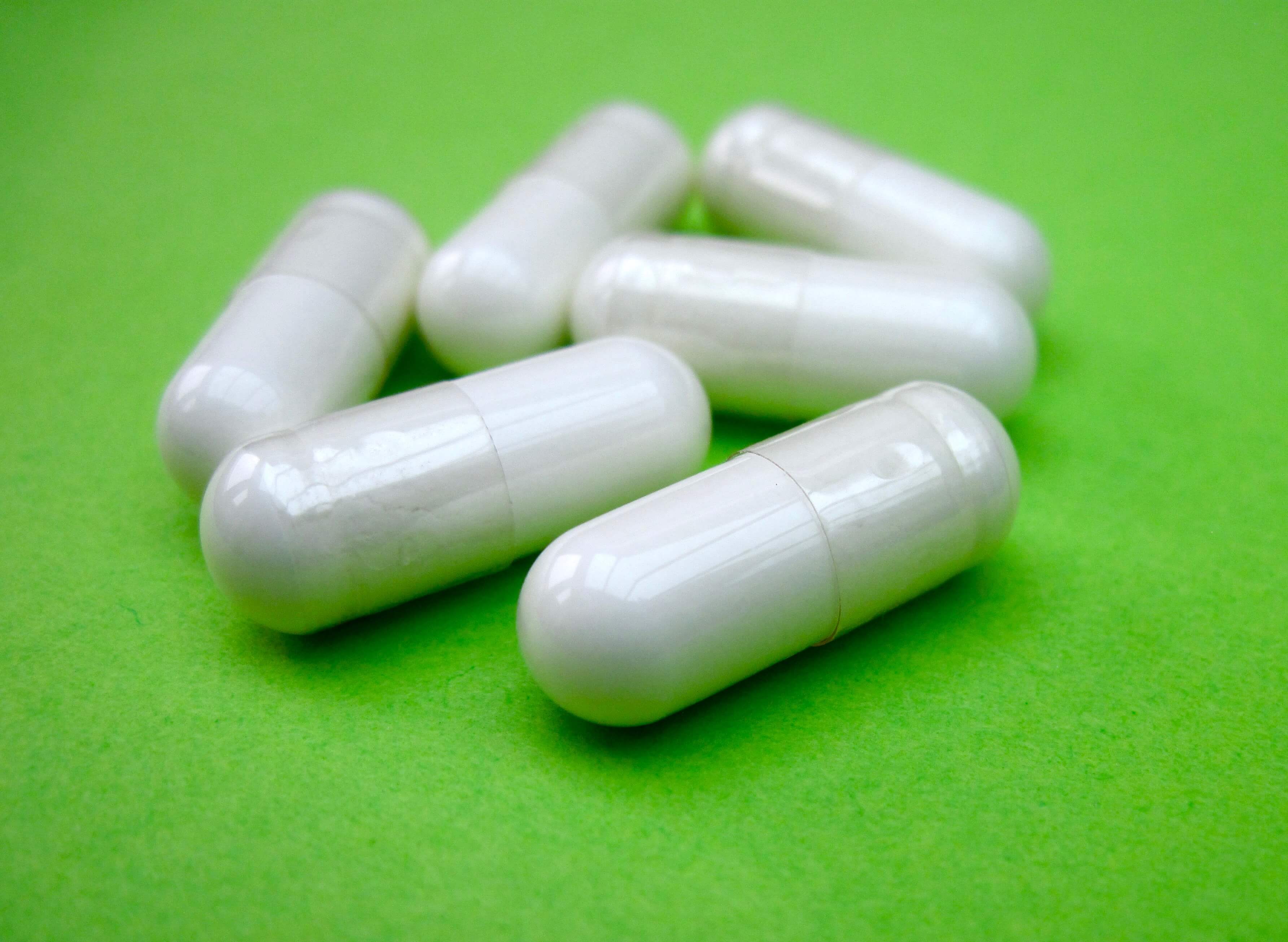 |
Fat Soluble Vitamins
A, D, E and K are fat-soluble and can be stored in the body. For this reason, excessively high doses are not recommended.
However, for most healthy adults, normal intakes are not only safe but essential for all areas of well-being.
Water Soluble Vitamins
C and the Bs are water-soluble. They are not stored in the body like fat-soluble vitamins but are excreted after several hours. As a result, they need to be replenished regularly.
When taking supplements, it is best to divide your daily intake into 2 or 3 doses and take at evenly spaced intervals.
Antioxidant Vitamins
A, beta carotene, C and E are antioxidants that can offer protection from unstable molecules called free radicals.
Free radical damage has been found to contribute to many different health problems such as cancer, Alzheimer's and heart disease.
Getting plenty of these important nutrients should be a priority in any health and wellness program.
Home > Vitamins